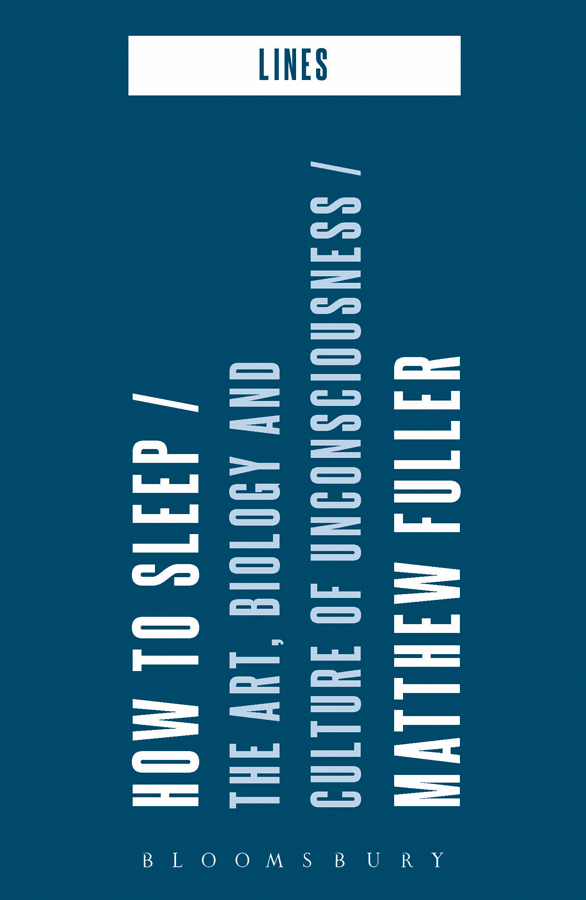Matthew Fuller: How to Sleep: The Art, Biology and Culture of Unconsciousness (2018)
Filed under book | Tags: · aesthetics, biology, brain, dreams, homeostasis, insomnia, sleep, unconscious

“Sleep is quite a popular activity, indeed most humans spend around a third of their lives asleep. However, cultural, political, or aesthetic thought tends to remain concerned with the interpretation and actions of those who are awake. How to Sleep argues instead that sleep is a complex vital phenomena with a dynamic aesthetic and biological consistency.
Arguing through examples drawn from contemporary, modern and renaissance art; from literature; film and computational media, and bringing these into relation with the history and findings of sleep science, this book argues for a new interplay between biology and culture. Meditations on sex, exhaustion, drugs, hormones and scientific instruments all play their part in this wide-ranging exposition of sleep as an ecology of interacting processes.
How to Sleep builds on the interlocking of theory, experience and experiment so that the text itself is a lively articulation of bodies, organs and the aesthetic systems that interact with them. This book won’t enhance your sleeping skills, but will give you something surprising to think about whilst being ostensibly awake.”
Publisher Bloomsbury Academic, London, 2018
Lines series
ISBN 1474288707, 9781474288705
192 pages
Jonathan Crary: 24/7: Late Capitalism and the Ends of Sleep (2013)
Filed under book | Tags: · capitalism, commodification, insomnia, neoliberalism, sleep

“24/7: Late Capitalism and the Ends of Sleep explores some of the ruinous consequences of the expanding non-stop processes of twenty-first-century capitalism. The marketplace now operates through every hour of the clock, pushing us into constant activity and eroding forms of community and political expression, damaging the fabric of everyday life.
Jonathan Crary examines how this interminable non-time blurs any separation between an intensified, ubiquitous consumerism and emerging strategies of control and surveillance. He describes the ongoing management of individual attentiveness and the impairment of perception within the compulsory routines of contemporary technological culture. At the same time, he shows that human sleep, as a restorative withdrawal that is intrinsically incompatible with 24/7 capitalism, points to other more formidable and collective refusals of world-destroying patterns of growth and accumulation.”
Publisher Verso Books, 2013
ISBN 1781680930, 9781781680933
144 pages
Review: Joseph Nechvatal (2013).
PDF (updated on 2024-3-3)
Comment (0)
